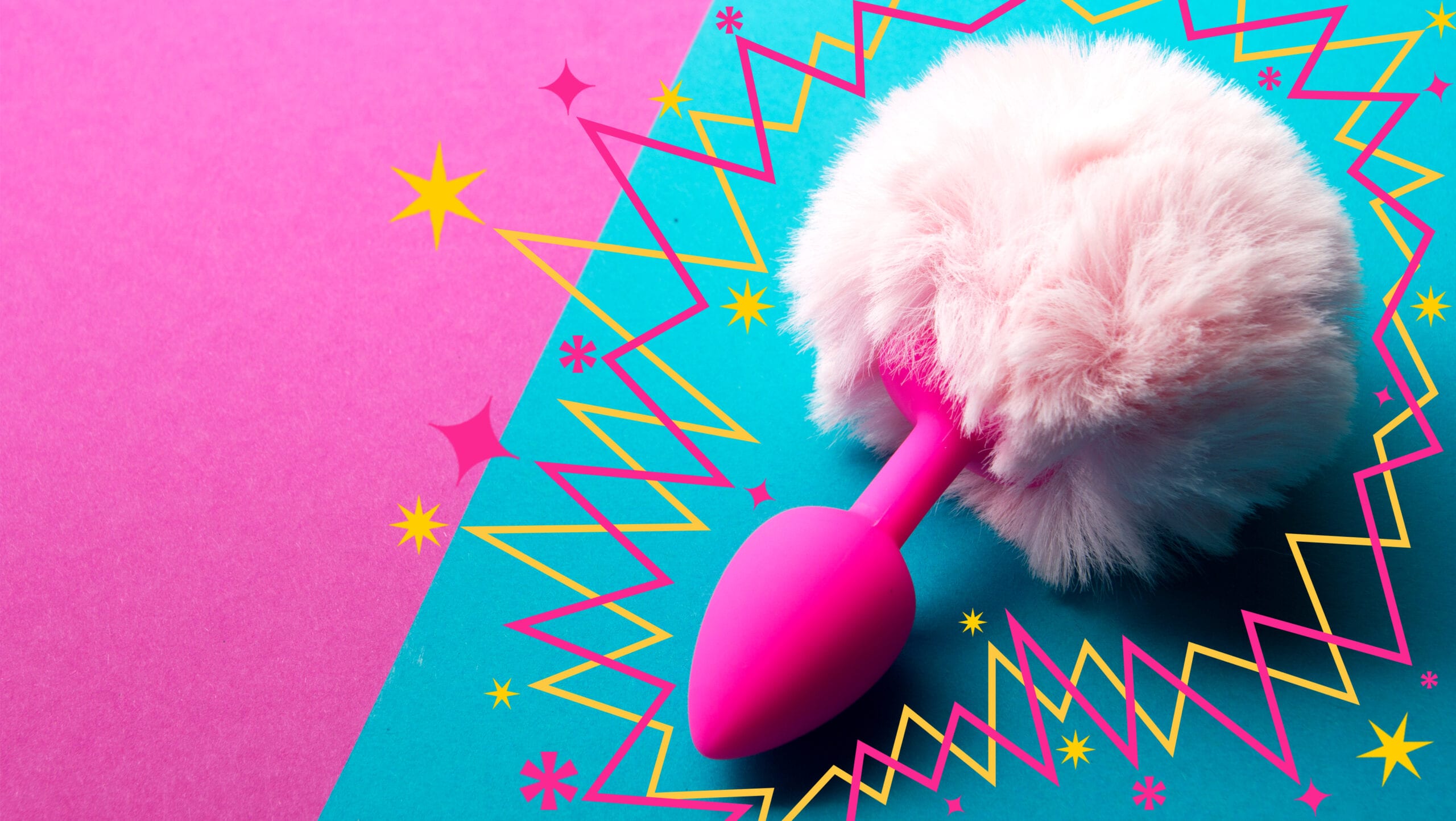I didn’t learn to masturbate alone. I’m sure, to some degree, people have an innate understanding of their body that leads them to explore with touch and guides one towards pleasurable sensations—but I didn’t.
It’s probably because I was dysphoric without really knowing it. I didn’t notice the discord until I was 19, when my perception of myself started to fall apart. My body and mind felt incongruous with itself, with my clothes and my voice. I began to recognize how my body had been shaped by the normalcy of others.
It took years to work through that realization. The being trans stuff, yes, but more so that my body conformed to cisheteronormativity. It’s like a rope tied too tight around a tender thigh. It shouldn’t have been so tight and, over time, the irritation numbs all other touch. If reproduction suggests a biological and social sameness, one that holds together the fragile façade of gender binaries, then I’d describe this social manipulation as an act of contortion. The knots, however, come undone rather effortlessly once you see their trick.
There was never any curiosity that guided my hand down my body; my thoughts never wandered. I had no sense of bodily desire when, in fifth grade, I learned about the reproductive system in a boys-only classroom. The teachers told us plainly about hair and growth and erections, about not having control over when we’d get them and about how sometimes white fluid might spill out. All my 11-year-old self could imagine was peeing myself in class. I didn’t think about trying it out myself.
But then I learned about masturbation. I was 12 or 13, away at summer camp for only a week, and surrounded by boys that were a couple of years above me. I had to listen to them talk to each other about girls they thought were hot and about getting themselves off as my imagination struggled to follow along. It was probably the early effects of testosterone on my mind and body that led me to try it myself, and yet it only makes sense to me now as mimicry. I had no idea what I was doing or what was happening to my body, so I latched onto what I was supposed to do. This is how cisheteronormativity forms its grip.
My earliest thoughts of girlhood were mediated entirely through heterosexuality. I simply filled in the fantasies that boys my age were having of girls by being the girl. I wondered what it would be like to suddenly wake up a girl—how I’d move through the world differently, yes, but I also wanted to touch myself as a girl. I often simulated having a vulva when I masturbated (based solely off of pornography I had seen). I touched myself as if my body was different. As if it could change; as if this was totally normal.
I didn’t learn to masturbate alone and I didn’t learn I was trans alone, either. I learned both with a bunch of queers: My first partner after coming out was a cis lesbian, the same person who, months earlier, introduced me to a feminist group on campus. That’s when my ropes started to unravel—by seeing other trans people. My partner also shared what she had learned at a queer youth group, and she taught me about lubrication and toys and kink. She also turned me on to Sexplanations, an educational YouTube channel made by queer-friendly sexologist Dr. Lindsey Doe. It made up for my public school “sex ed” (that is, reproductive system) course years prior. Even as I still grappled with the worst of my dysphoria, I was learning something useful and empowering.
I had turned to Reddit when I started questioning, searching for the obvious words, and eventually I found myself in subreddits that were only frequented by other trans girls and non-binary people. I learned about tucking, about leaving the estradiol tablets under your tongue, about vibrators, about muffing, about Fucking Trans Women. Most importantly, I started seeing more trans bodies, bodies that were sexual but not fetishized. These weren’t the hyperbolic productions of a cis gaze, permitted to exist only through fetishism like the trans bodies I had been shown growing up. Later, I found queer porn and trans sex workers on Twitter, and even artists animating trans (and sometimes furry) bodies. I found these other trans women attractive and, over time, I felt I was more like them than my own eyes insisted.
I learned all this over my first two years of transitioning, in my early 20s. Even though only one of those years had been on HRT (hormone replacement therapy), its effects on my sexuality occurred simultaneously. Then I started taking progesterone. (Most people taking estrogen and testosterone blockers don’t start progesterone until their second year on hormones.) It helps shape your breasts for some reason (my endo says the doctors don’t know why it works on us), but it has some other side effects that aren’t in medical texts. Plainly: It makes you horny.
Combined with the breakup from a partner, these side effects may also include: Making a Grindr account, sexting, hooking up, a thirst for nudes and, of course, masturbating.
When I started to masturbate again after coming out, I brought with me a new paradigm of knowledge and experience. Most of all, I was comfortable in my transness. I stopped craving cis femininity—mimicking cis girls, hoping to be fucked like one—and started recognizing my penis as a girldick. And it’s this I hope other trans girls can know: Our bodies are desirable, and they also desire. By allowing my body to exist on its own terms, I stopped reproducing cisheteronormativity and started wearing brown lipsticks, taking selfies in botanical gardens and, on occasion, masturbating like a trans girl.

 Why you can trust Xtra
Why you can trust Xtra


